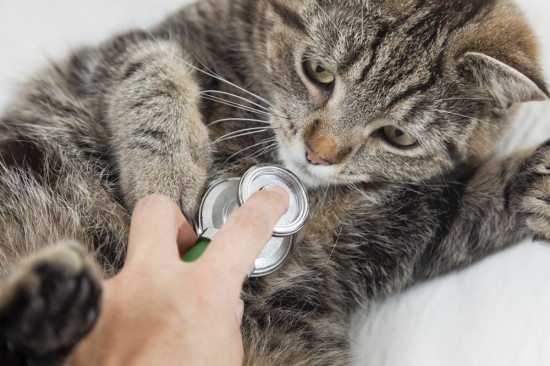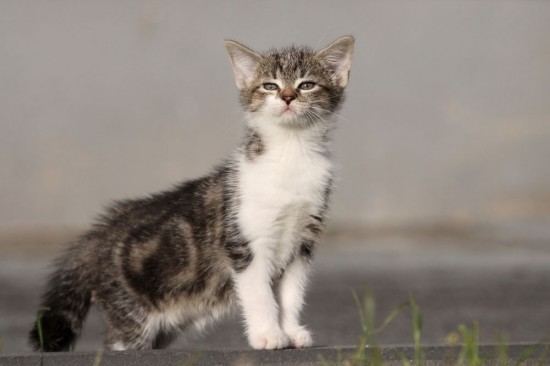

As cat owners, we all want to make sure that our pets are happy and healthy at all times, and although we probably have regular health checks carried out by the Vet when our cats have their annual vaccination boosters, we also need to watch out for signs that all might not be quite right at other times.
If you spot any of the following symptoms, these indicate an emergency and you should contact your Vet immediately:
Even if your own Vet’s surgery does not offer an out-of-hours service, they will have an arrangement with another local practice and contact details will undoubtedly be available on the answer-phone if you call the normal surgery number. Do not assume that your Vet will make a home visit in times of emergency – they will usually prefer you to take the cat to the surgery where they have all the necessary equipment and medication to deal with the problem straightaway.
If your cat has had an accident (and you may not have witnessed this personally), you might see evidence of broken or fractured limbs, where damaged bones have been forced through the skin, or internal organs protruding through an orifice or through a serious wound, you should again contact your Vet immediately. Accidents like this often occur in twilight or darkness, and even if your cat is an ‘outdoor’ cat, it’s worth considering providing a litter tray just for overnight. If your cat usually comes in when it gets dark and doesn’t appear one night, it would be worth going out to look for him in case he is lying injured somewhere and has been unable to get home, rather than just assuming he’ll turn up in the morning. For this reason, it is also very worthwhile getting your cat microchipped as if another cat lover finds an injured cat near their house, they may take it directly to a Vet who will be able to check for ownership by scanning the chip.
Other mishaps needing immediate veterinary treatment include instances where you suspect your cat may have been poisoned or bitten by another animal or poisonous snake, or if your cat has been received serious burns or scalds, or if they are suffering from heat stroke or even hypothermia. Time can make all the difference here, and if your cat can be treated before their whole system is affected, they will stand a far better chance of survival. Straining in the litter tray might also be the sign of a serious blockage, especially if the cat is crying with pain as it strains, and this too will requite urgent veterinary attention.
Often the first sign of ill health is when we notice a change in our cat’s habits. Cats tend to be creatures of habit and so any change in their own personal routines, or maybe a different reaction to a commonplace occurrence within the home, may be an indication that Puss isn’t quite feeling himself. If you notice a cat that is usually eager for dinner to be served up is nowhere to be seen at a mealtime, or they are sitting tucked away somewhere quiet and maybe in the dark, this probably needs further investigation.
Cats who are not feeling well usually stop grooming themselves and their coats often become greasy, open and ‘staring’ through dehydration. You will often see the ‘third eyelid’ (also known as the ‘haws’) come up if your cat does not feel well – this takes the form of an extra membrane coming across they eye, and also often indicates dehydration. An un-well cat will not want to be touched or picked up, and if you try and move them they may uncharacteristically bite or scratch you.
Other signs to be aware of include:
Cats sometimes get an abscess if they have been fighting, or even just playing rather enthusiastically, and this will need a course of antibiotics even if the abscess has broken and the excess fluid has gone, as an infection could well follow.
Cats displaying symptoms that do not constitute an emergency should be taken to the Vet on the next working day. It’s natural to be worried about your cat if they are not 100% fit, but try not to ring your Vet out of hours unless it is an emergency.
Never be tempted to try and treat your sick cat yourself with medication intended for humans. Some medication (such as aspirin) is poisonous for cats, and even with a broad-spectrum antibiotic, the dosage will be considerably smaller than for the person taking it for a human ailment. You should also not give any medication intended for another pet (even a cat), as you may not be treating exactly the same problem.
It’s worth stressing the importance of pet insurance again here. Modern veterinary methods may well be able to save the life of your beloved cat, but will come at a cost, possibly in the region of £2000 depending on the severity, and for a few pounds a month you will be spared the anxiety of wondering if you can afford the necessary treatment. Most policies have an excess of £50, but this is tiny compared to the actual cost. Once you have insured your cat they will be covered into old age, but most pet insurance companies will not begin a fresh policy on a cat over about 7 years old that has not previously been insured.
 Dealing With A Cat That Bites Or Lashes Out
Dealing With A Ca
Dealing With A Cat That Bites Or Lashes Out
Dealing With A Ca
 Introduction To Keeping Leopard Geckos
Introduction To K
Introduction To Keeping Leopard Geckos
Introduction To K
 Dependable Cattery Warrington services
Dependable Cattery Warrington services
No matt
Dependable Cattery Warrington services
Dependable Cattery Warrington services
No matt
 Keeping Sighthounds Happy
Keeping Sighthoun
Keeping Sighthounds Happy
Keeping Sighthoun
 How Good Gut Bacteria Protects Your Dogs Overall Health
How Good Gut Bact
How Good Gut Bacteria Protects Your Dogs Overall Health
How Good Gut Bact
Copyright © 2005-2016 Pet Information All Rights Reserved
Contact us: www162date@outlook.com